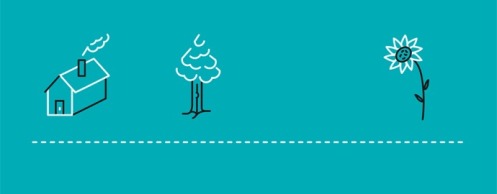See the article for context. Seems like a plausible suggestion to me, but I'm curious what others think.
Consider the house, tree, and sunflower in the illustration at the top of this post. The sunflower is farther from the tree than the house is. But it would sound a bit odd to say that the sunflower is further than the house, given that the sunflower lies in the opposite direction. On the other hand, it would be colloquial to say that the sunflower is further from the house than the tree is, because the tree and the sunflower lie in the same direction.
Also
A mathematician might say that further is referring to the increase of a vector, and farther to the increase of a distance. To say it in English rather than in math: farther refers to a greater distance, literal or metaphorical, from a shared measuring point. Further refers to a greater progress in a shared direction.
http://www.newyorker.com/books/page-turner/further-and-farther-a-theory
(subscription needed after limited free articles).

